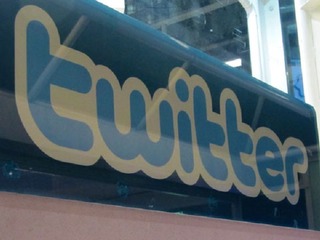Two Chairs raises $72M to match patients to the right mental health provider
This is the company's first fundraising since 2019 and brings its total capital to $103M
Read more...
Diversity, or the lack thereof, has become a hot topic in Silicon Valley over the last couple of year. Companies have started releasing reports on their gender and racial make up, while also spending a lot of money to help fix the problem.
Of course giving identifying the problem, and spending the money that will give people opportunities they otherwise would not have, are both important steps in tackling these issues. But they don't solve the whole problem. Not by a long shot.
Pinterest is now taking steps to address what happens when people actually get hired, and how to make them feel comfortable in their environments so they can succeed.
Through a partnership with Paradigm, the social media company revealed on Tuesday that it will be doing research on how to best to address inclusion, specifically "belonging uncertainty," or the idea that people cannot live up to their full potential if they do not feel like that belong.
"When people enter a new environment, like when they start college or a new job, they often wonder whether or not they’ll belong. Research shows that this concern can be especially pronounced for members of demographic groups that are underrepresented in that environment," Carissa Romero, Partner at Paradigm, wrote in a blog post.
Basically, when people aren't certain they belong, they look for things that reinforce this idea.
“When something good happens, they feel like they probably do belong, but when they have a negative experience, they’re more likely to question whether they belong," said Romero.
And so, instead of focusing on their work, people use their mental energy to figure out if they don't belong. Basically, it's bad for them and bad for their employer as well. Nobody wins when an employee feels ostracized.
Paradigm has been testing out this theory at new employees at Pinterest for the past year, and it already has some interesting findings, though nothing very surprising.
First, women who joined the company were more likely to have belonging uncertainty than men. Second, that those who did not feel like they belonged not only felt better about the work they were doing, but also were more likely to become involved, which means participating in company activities and speaking in meetings.
"Ultimately, when people are confident they belong, they’re more engaged and have a more positive experience at work," said Romero.
Obviously simply knowing about this is not enough; companies actually have to be able to do something about it.
The research that was done does show that belonging uncertainty can be helped, simply by sitting people down and explaining to them that its normal to feel a little out of sorts when joining a new workplace, and that it's going to get better over time.
"This study is an important step in understanding how to build a more inclusive environment. We're in the early stages of designing a program to help all employees feel certain they belong at Pinterest. We hope other companies can benefit from this study, and we'll share additional findings as they become available," a Pinterest spokesperson told me.
Tackling diversity in Silicon Valley
Addressing the belonging uncertainty is the next step toward making workplaces more diverse. So far, though, most are still tackling the first problem of simply getting people in the door in the first place.
Even companies that have released diversity reports are having trouble making gains. Microsoft, for example, saw the number of minorities, and women in tech roles, increase between its report in 2014 and 2015, it also lost 2 percent of its female workers at the same time.
Mostly, so far, companies have been throwing money at the problem.
Apple, for example, announced that it would be partnering with the Thurgood Marshall College Fund, a non-profit that supports students enrolled in public, historically black colleges and universities (also known as HBCUs), such as North Carolina A&T State University, Howard University, and Young's alma mater, Grambling State University. It also said that it donating $50 million to groups that promote diversity.
In January, Intel announced it was investing a whopping $300 million to "build a pipeline of female and under-represented engineers and computer scientists," as well as to actively support hiring and retaining more women and under-represented minorities.
Intel also revealed its plan to fund programs that celebrate diversity, including the International Game Developers Association, the E-Sports League, the National Center for Women in Technology, the CyberSmile Foundation, the Feminist Frequency, and Rainbow PUSH.
In October of 2014, Facebook, Box and Pinterest announced that they had gotten together to launch a new mentorship program called WEST (Women Entering and Staying in Tech). The idea is to get more women interested in computer science, and to help them be prepared for the tech jobs of the future.
WEST will feature women who have technical jobs at all three companies, who will serve as one-on-one mentors. They will meet with mentees individually and as a group, in-person and online, over the course of a year. The program will officially launch in pilot mode this year.
Vator has also attempted to tackled this issue during our "When will tech look like America" panel in April of last year, which featured Freada Kapor Klein, Co-Founder of Kapor Center; Libby Schaaf, Mayor of City of Oakland; Kimberly Bryant, Founder of Black Girls Code; Nilka Thomas, Manager of Global Diversity and Talent Inclusion, Google; and Lisa Lee, Senior Diversity Manager at Pandora.
While I would never discount those efforts, what makes what Paradigm and Pinterest are doing so interesting is that they are attempting to address the reality of the situation, and not pretending that the work stops when people come through the door.
(Image source: sfpirg.ca)
This is the company's first fundraising since 2019 and brings its total capital to $103M
Read more...ROOK lets health, fitness, and wellness companies take data from devices and make it actionable
Read more...The EU approved the European Health Data Space, making it easier to exchange and access health data
Read more...








